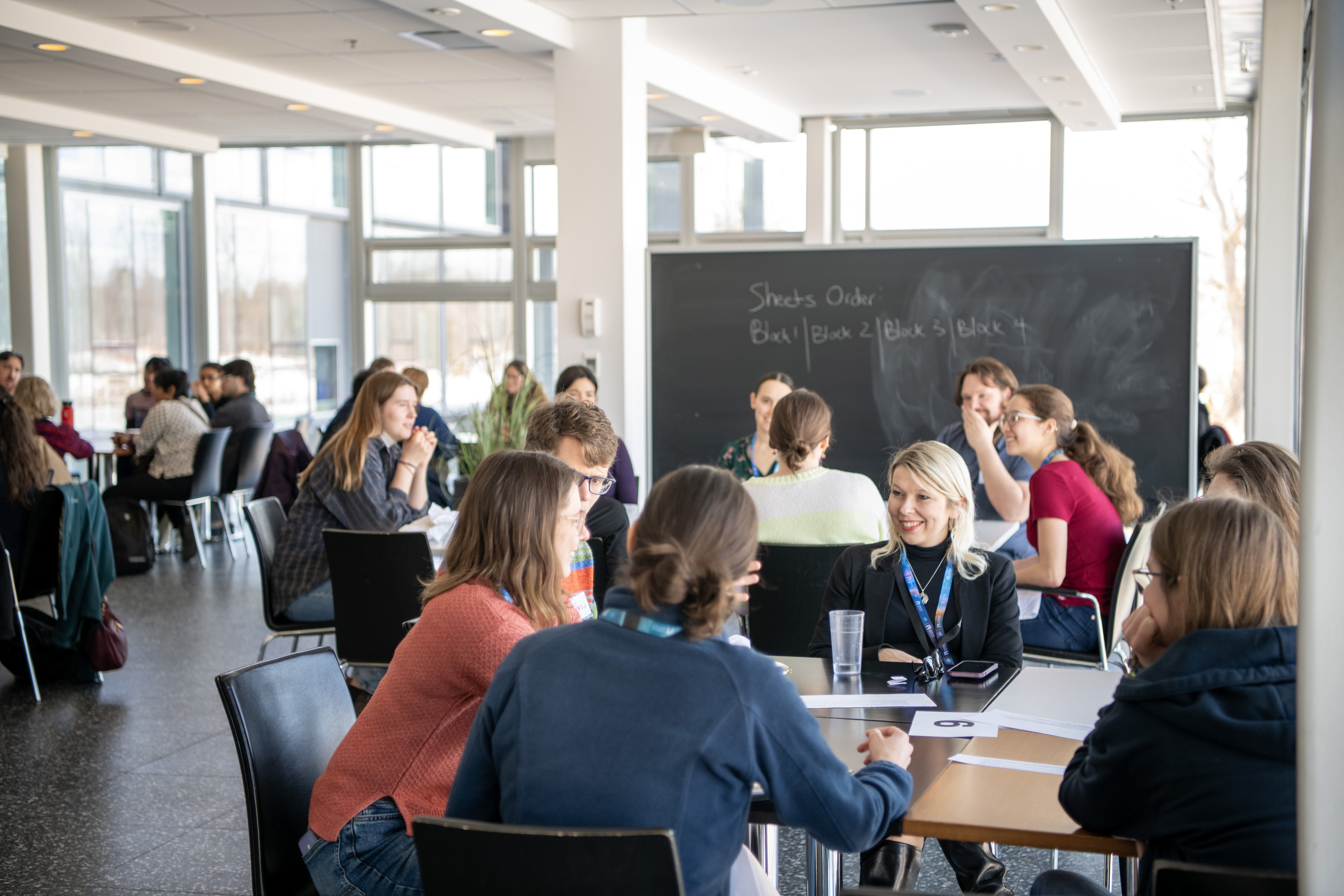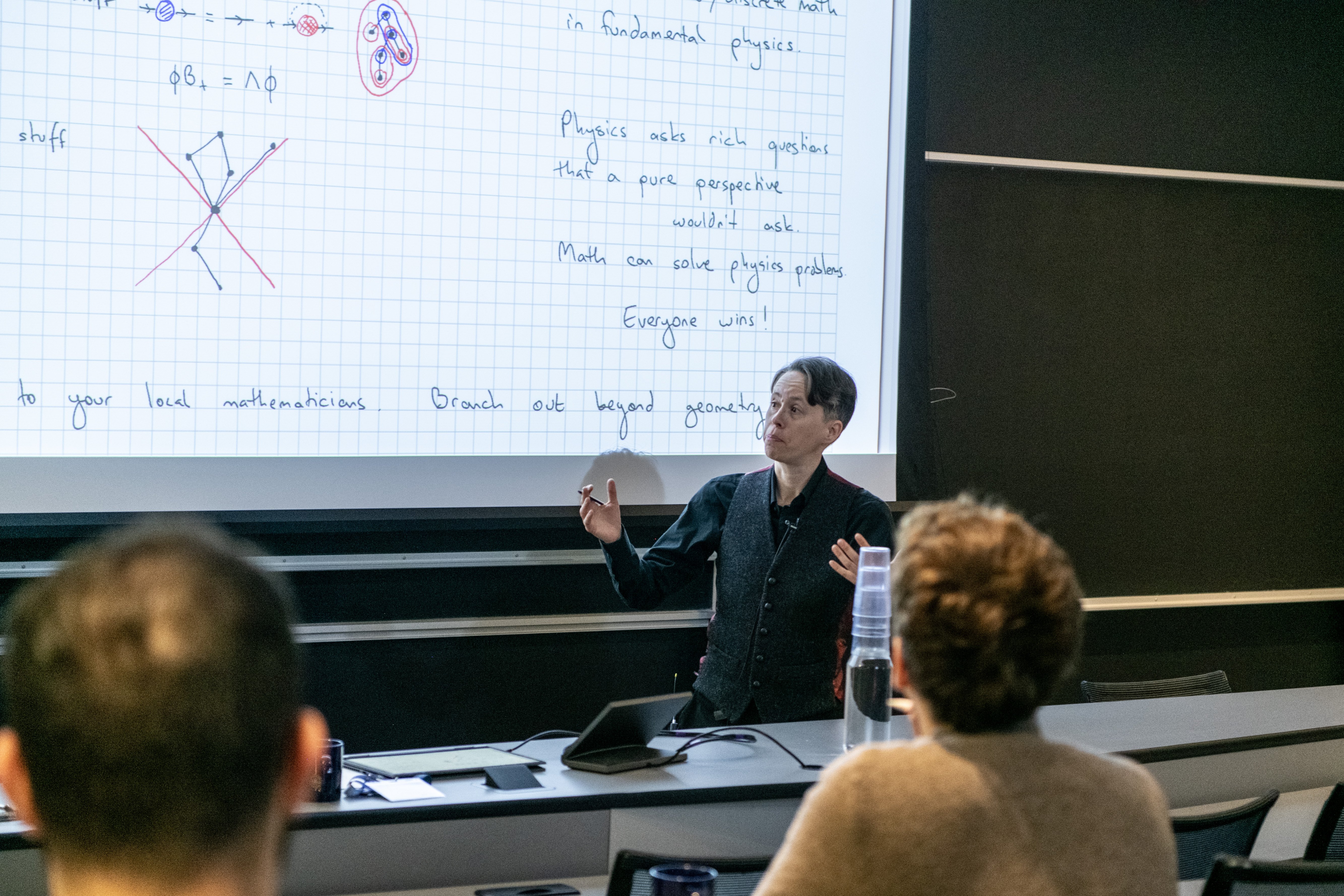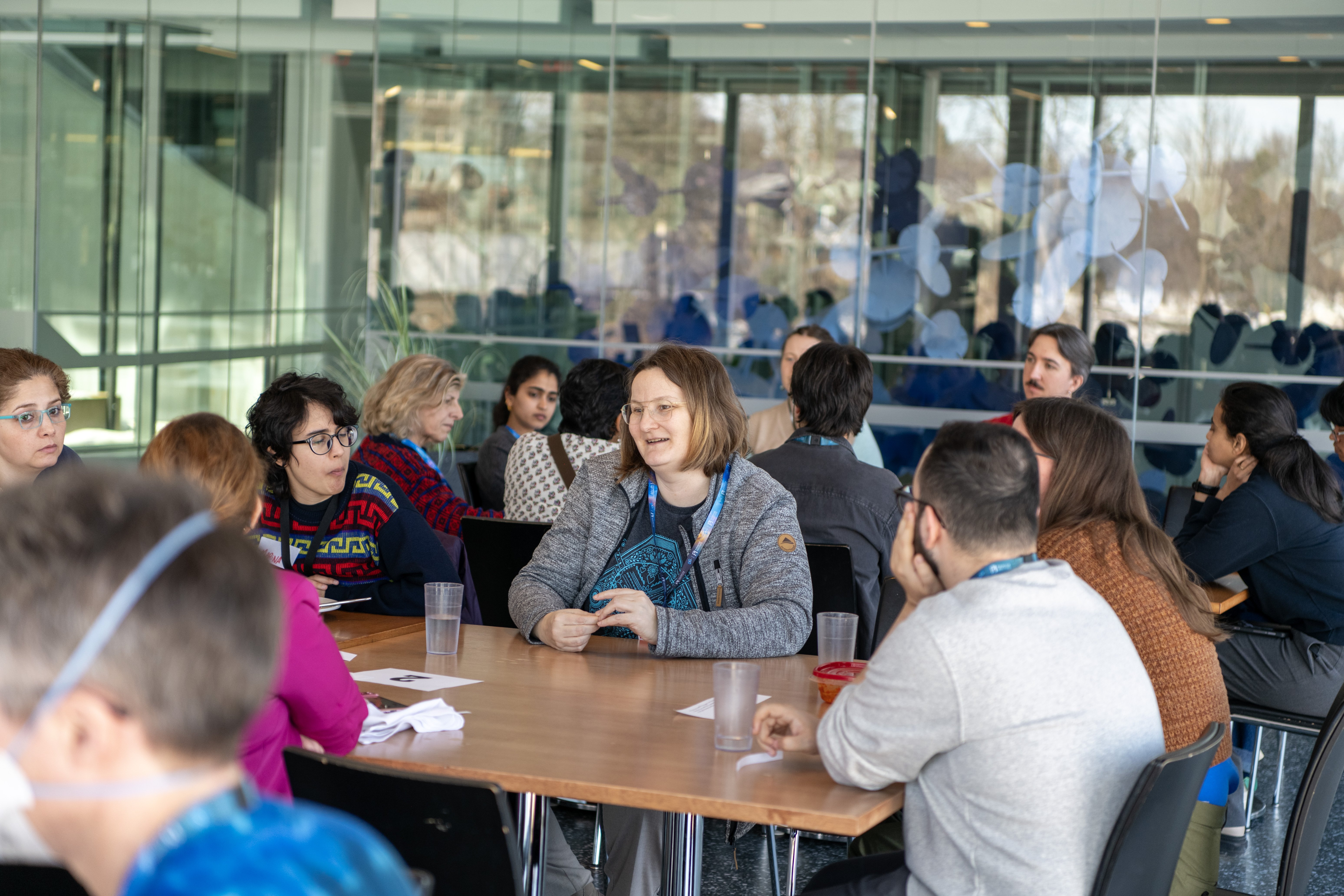In March 2025, a mix of researchers – from cosmologists to string theorists to mathematicians – gathered at Perimeter Institute to discuss one of the biggest challenges in theoretical physics today: constructing a theory of quantum gravity. And, while it’s not unusual to have a meeting of minds in Perimeter’s hallways, the Emmy Noether Workshop: Quantum Space Time, supported by the Simons Foundation, stood out for an important reason. The speakers were people often underrepresented in science: women and gender diverse physicists.
The workshop is part of Perimeter’s Simons Emmy Noether Fellowship Program. Thanks to generous support by the Simons Foundation, the program assists early and mid-career women in getting a foothold in physics research. Of the 15 speakers at the workshop, seven were previously appointed Emmy Noether Fellows or Postdoctoral Fellows. 32 researchers attended the workshop, including members of the Perimeter community and fellows from previous cohorts of Emmy Noether Fellows.
Sruthi Narayanan, one of the scientific organizers for the workshop and a postdoctoral researcher at Perimeter Institute, says the wide range of disciplines represented at the workshop was key to its success. “Quantum gravity as a field has so many approaches,” she says. “One of the most well-known is string theory, but it is definitely not the only one.”
“Researchers are approaching this problem from different viewpoints, including lattice regularization, more mathematical approaches like causal set theory or algebraic quantum field theory, and various holographic approaches. There are even people who think about experimental signatures of quantum gravity.”
There are big draws to having such a diverse group of viewpoints on hand. “It helps younger researchers who haven't had as much exposure to all these different approaches, like me, learn about other ways to think about the same problem,” says Narayanan.
And, as we often see in research, two – or in this case many – heads working together are better than one. “It’s kind of like we were all blindfolded and our task was to identify an apple,” says Narayanan. “Person A might try and feel the apple and determine what it is based on geometry and texture. Person B might try to, say, bite into the apple and match the taste.”
“While both approaches allow us to learn about the apple, Person A and B might not independently have enough information to determine what it is. However together they could most likely conclude it’s an apple.”
University of Waterloo faculty member, Canadian Research Chair, and past Emmy Noether fellow Karen Yeats presented at the workshop on a causal set theory approach to quantum gravity. “It’s been nice bringing together a lot of different people who look at quantum gravity from different directions,” Yeats says, adding that the workshop was “opening and inviting.”
Reflecting on their time as a fellow, Yeats complimented the community atmosphere at Perimeter, highlighting the seminars they attended and people they met. “It’s just a really nice environment to work in, and I really benefitted from that.”
Boosting young researchers through the Simons Emmy Noether Fellowship
The Simons Emmy Noether Fellowship Program is designed to give young female researchers a boost, explains Rob Myers, Perimeter’s Director Emeritus and BMO Financial Group Isaac Newton Chair in Theoretical Physics. “By inviting the Emmy Noether Fellows for extended visits, we remove the distractions of administration and other responsibilities that early-career faculty may face at home, enabling them to focus fully on their research instead,” he says.
In turn, Perimeter is made better by the new faces the program brings in. “It benefits the Institute,” says Myers. “It sets a role model for students, for postdocs, and for the faculty to see these very successful female researchers around the building. They add to the atmosphere and environment here at Perimeter and contribute to the success of our research mission .”
“The number of women in theoretical physics is generally low,” adds Bianca Dittrich, faculty chair and lead for the fellowship program. She points to family responsibilities and travel restrictions as some of the difficulties women face. The program works to reduce these barriers by offering the fellows ample research time and collaborative opportunities.
As for the spring workshop, “most people were just amazed by the atmosphere,” says Dittrich. “People were really engaging with each other to an extent that I do not usually see at workshops.”
This was echoed by Narayanan, who says meeting the “great group of women” was a highlight of the week. “In academia, especially theoretical physics, while we are working to increase the number of women in the field, we are still a minority,” she says. “It isn’t often that you get the chance to talk to and learn from the experiences of other women and ask about their academic journey. This was really special and important for me.”
About PI
Perimeter Institute is the world’s largest research hub devoted to theoretical physics. The independent Institute was founded in 1999 to foster breakthroughs in the fundamental understanding of our universe, from the smallest particles to the entire cosmos. Research at Perimeter is motivated by the understanding that fundamental science advances human knowledge and catalyzes innovation, and that today’s theoretical physics is tomorrow’s technology. Located in the Region of Waterloo, the not-for-profit Institute is a unique public-private endeavour, including the Governments of Ontario and Canada, that enables cutting-edge research, trains the next generation of scientific pioneers, and shares the power of physics through award-winning educational outreach and public engagement.



